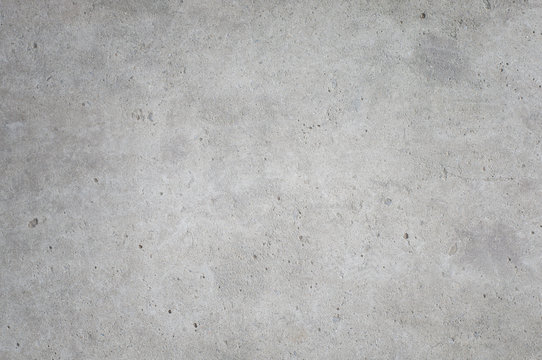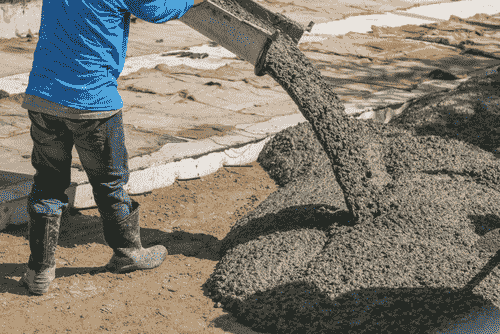Comprehensive Guide to Concrete: From Installment to Completing Touches
Comprehensive Guide to Concrete: From Installment to Completing Touches
Blog Article
Revealing the Eco-Friendly Advantages of Making Use Of Recycled Concrete in Sustainable Building And Construction Practices
In the realm of sustainable construction practices, the application of recycled concrete stands as a pivotal yet usually undervalued resource. Past its conventional applications, recycled concrete offers a myriad of green advantages that prolong far past the boundaries of conventional building products. From reducing ecological impact to boosting cost-efficiency, the implications of incorporating recycled concrete in sustainable building methods are considerable. This functional product not only addresses pressing ecological problems however also provides a feasible service to the challenges encountered by the building and construction industry at large.
Environmental Benefits
By including recycled concrete into building techniques, there is a considerable decrease in the requirement for brand-new raw products, leading to conservation of all-natural sources. In addition, the usage of recycled concrete decreases the quantity of waste being sent out to land fills, therefore lowering environmental contamination and easing the strain on land fill capacities (Concrete).

In contrast, recycled concrete has a reduced carbon footprint as it lowers the demand for brand-new concrete manufacturing. Generally, the ecological advantages of using recycled concrete are significant and play an important function in promoting eco-friendly construction techniques.
Cost-Efficiency
Accomplishing cost-efficiency is a vital consideration when evaluating the use of recycled concrete in building and construction tasks. One of the vital advantages of making use of recycled concrete is its cost-effectiveness contrasted to traditional concrete. The production of recycled concrete involves less energy and sources as it utilizes existing products, reducing the overall project expenses considerably. Additionally, the schedule of recycled concrete locally can better lower transport expenditures, making it a much more economical option for building and construction tasks.
In addition, the use of recycled concrete can result in savings in land fill expenses by diverting concrete waste from disposal websites. This not only minimizes the ecological effect but also removes the expenses related to waste removal. The resilience and efficiency of recycled concrete are comparable to conventional concrete, ensuring that price savings do not jeopardize the top quality of the building.
Durability and Stamina
Thinking about the significant cost-efficiency benefits of utilizing recycled concrete, it is vital to analyze its longevity and stamina in building applications. Recycled concrete deals similar, if not remarkable, toughness and toughness residential or commercial properties to typical concrete. Through advancements in handling strategies and quality assurance, recycled concrete can satisfy or surpass the efficiency requirements of conventional concrete. The process of recycling concrete includes squashing, sorting, and evaluating old concrete to produce accumulations that can be used in brand-new construction jobs. These recycled aggregates are qualified of providing sufficient compressive strength, toughness, and lasting efficiency.

Waste Decrease
Effective waste reduction practices play an important role in the lasting utilization of sources within the construction market. Waste reduction is a crucial benefit that contributes significantly to environmental preservation when it comes to using recycled concrete. Typical construction methods typically generate considerable amounts of waste, specifically in the type of concrete debris from demolition websites. By integrating recycled concrete into construction tasks, this waste is repurposed and diverted from landfills, minimizing the total ecological impact of construction tasks.
Recycled concrete not just helps in decreasing the amount of waste that winds up in land fills yet also saves natural deposits by lowering the demand for brand-new accumulated materials. This process of waste decrease promotes a circular economy within the construction sector, where products are reused and reused to develop a much more lasting sector. In addition, using recycled concrete can lead to set you back savings for building jobs, as it is usually more budget friendly than sourcing and carrying new materials. Finally, waste decrease with the use of recycled concrete is an essential part of sustainable building methods that benefits both the atmosphere and the building industry as a whole.
Power Preservation
When it comes to using recycled concrete in building and construction, considerable energy savings are attained compared to standard concrete manufacturing. The procedure of producing recycled concrete involves squashing and reusing existing concrete materials, which eats much a knockout post less power than mining, handling, and delivering raw materials for new concrete production.
Final Thought
To conclude, the utilization of recycled concrete in sustainable construction techniques offers various environmental benefits, cost-efficiency, durability, strength, waste reduction, and power conservation. By incorporating recycled concrete right into construction jobs, we can add to an extra sustainable and environmentally pleasant future. It is important for the building and construction market to prioritize making use of recycled materials to help in reducing the environmental effect of construction tasks.
One of the key advantages of making use of recycled concrete is its cost-effectiveness compared to traditional concrete.Moreover, the use of recycled concrete can lead to cost savings in land fill costs by drawing away concrete waste from disposal sites. The durability and efficiency of recycled concrete are similar to traditional concrete, ensuring that expense savings do not endanger the quality of the view it now construction.

Report this page